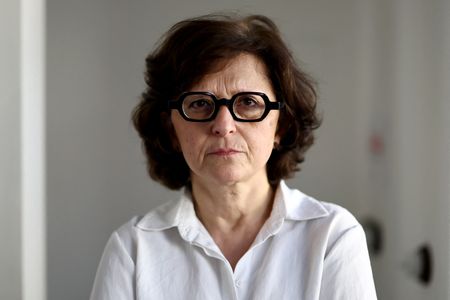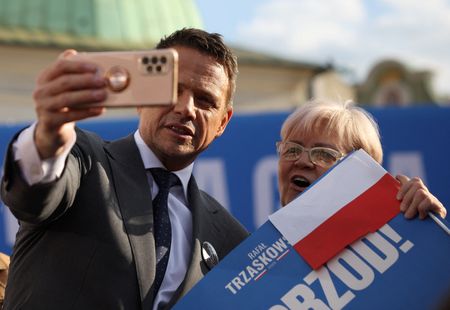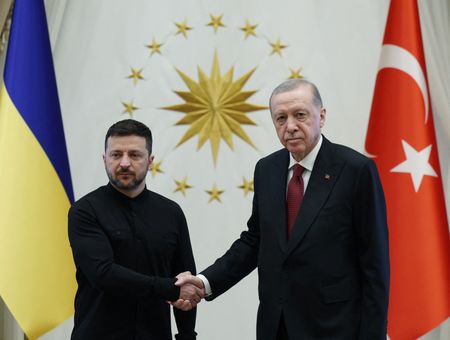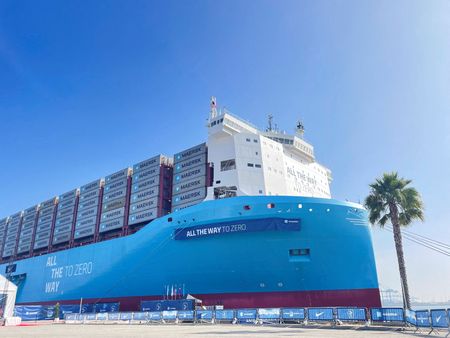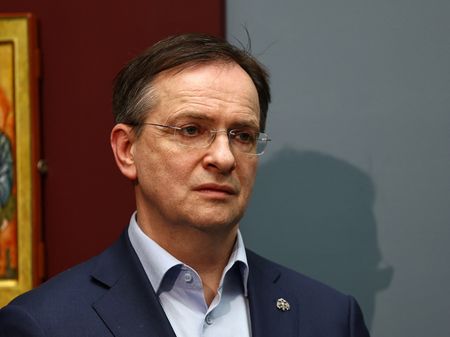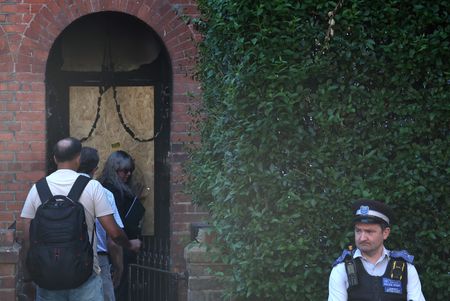(Reuters) – Following are the main parties running in Portugal’s general election on Sunday, its third in just over three years. Opinion polls are pointing to another fragile minority government and a fragmented parliament.
DEMOCRATIC ALLIANCE (AD), INCUMBENT
Portugal’s governing Democratic Alliance groups the centre-right Social Democratic Party (PSD) of caretaker Prime Minister Luis Montenegro and the conservative CDS-PP. Montenegro, 52, remains its candidate for the premiership.
In March 2024, the AD won the national election with 28.8% of the vote, edging out the Socialists with 28%, but a year later its government lost a parliamentary vote of confidence after the opposition questioned Montenegro’s integrity over the dealings of his family’s consulting firm.
The AD has rallied around Montenegro, who has denied any wrongdoing, and opinion polls show he is the favourite to win, with his reputation largely unscathed.
The AD promises to stay the course it set last year aimed at lowering taxes for the middle class and companies, controlling immigration and tackling a housing crisis.
Montenegro refused any agreement with the far-right populist Chega party in the last legislature and has stuck to his “no means no” stance in the electoral campaign.
SOCIALIST PARTY (PS)
The centre-left PS is a dominant force in Portuguese politics alongside its main rival PSD, and has been in government more than any other party since the 1974 fall of the fascist dictatorship.
Pedro Nuno Santos, a 48-year-old economist, has led the party since late 2023, following the resignation of Prime Minister Antonio Costa amid an investigation into alleged illegalities in his government’s management of major investment projects, none of which have been proven.
As a junior minister, Santos successfully coordinated support for Costa’s first government with the hard-left Communist Party and Left Bloc in 2015-19.
The PS enabled the passage of Montenegro’s first budget last October, but in March was instrumental in toppling his government in the confidence vote.
Despite their many differences, the PS and the AD have both worked to keep public finances on a sound footing and to cut debt when in power, which have won them praise from the EU, investors and credit rating agencies.
CHEGA (‘Enough’)
The anti-establishment Chega was formed just six years ago but became the third-largest parliamentary force in 2022 and quadrupled its seats last year to 50 on a platform of fighting corruption and immigration.
Its leader, 42-year-old Andre Ventura, is a law graduate who once trained to be a priest but who made his name as a TV sports commentator. He is a former PSD member who gained notoriety in 2018 with incendiary remarks against the local Roma community.
A year later he founded Chega, advocating tougher sentences for criminals, including chemical castration for repeat rapists, calling for an end to Portugal’s “open doors” immigration policy and accusing the PS and PSD that have run the country for the past 50 years of perpetuating corruption.
Chega is polling third but little changed from its 2024 result of 18%, its meteoric rise apparently stalled by scandals involving several senior party members.
LIBERAL INITIATIVE
The right-of-centre party advocates business-friendly reforms, lower taxes, and reduced bureaucracy and is seen by many analysts as a natural partner for the AD. Its current level of support – about 6% in opinion polls – would be insufficient to secure a clear majority if the two were to form an alliance.
LIVRE
The leftist party may add a seat or two after winning four seats in the previous legislature and is polling ahead of fellow left-wing parties Left Bloc and CDU.
COMMUNIST PARTY
Once a major force in Portuguese politics, it had its worst ever result in 2024 of just 3.1% under the leadership Paulo Raimundo, 48, who replaced veteran firebrand Jeronimo de Sousa in 2022. Opinion polls show the anti-NATO, eurosceptic party maintaining roughly the same level.
LEFT BLOC
The hard-left party won only five seats in 2024 with 4.4% support, down from its peak popularity with 19 parliamentary seats in 2015 and 2019. It is polling at just below 3%.
Led by 38-year-old economist Mariana Mortagua, it defends a stronger welfare state, rent controls, taxing the wealthy and big companies, and has made overtures to ally with the PS.
PAN (PEOPLE, ANIMALS, NATURE)
The left-leaning party is at best expected to again elect one lawmaker.
(Reporting by Joao Manuel Mauricio and Tiago Brandao in Gdansk, Editing by Andrei Khalip, Charlie Devereux and Frances Kerrry)



